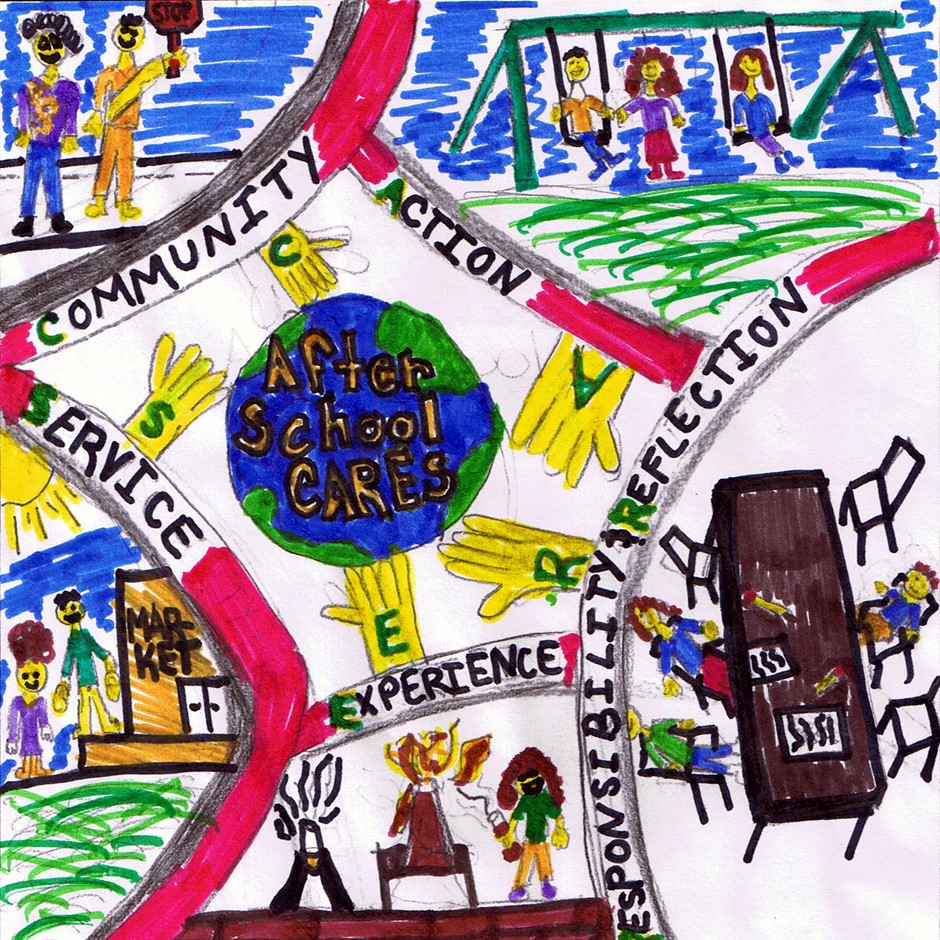
Afterschool CARES! A Professional Learning Community Dedicated to Service-Learning
NJSACC, in partnership with the National Youth Leadership Council (NYLC), will lead a service learning professional learning community during the 2021-2022 school.
Because service-learning supports youth action on pressing needs, students address issues such as racism, equity in education, environmental justice, mental health and/or climate change in culturally responsive ways that are rooted in the students’ passions and their communities’ needs. The process is a learner-centered cycle of inquiry, compelling young people to answer questions such as:
- What are the true needs in my community?
- What are the root causes of these needs?
- How, where, and from whom can I learn more?
- How can I contribute to a solution?
Apply to join our Afterschool CARES! Service Learning Professional Learning Community!
Participants will:
- Receive access to the National Youth Leadership Council’s library of online resources for the ’21-’22 school year
- Receive 90 minutes of professional development in a service learning kickoff event on 9/15/2021
- Launch a service learning project with program youth in October 2021 in connection with Lights On Afterschool!
- Share photos and a brief summary of your project with NJSACC
- Receive a $300 stipend
- Participate in periodic community check-ins
- Opportunity to present on a service learning panel at the NJSACC conference, April 29-30, 2022
Questions? Please contact NJSACC here. Thank you!
Google form has now closed.
What is service-learning?
Service-learning is an approach to teaching and learning in which students use academic and civic knowledge and skills to address genuine community needs.
Service-learning is a type of experiential and project-based learning that drives students’ academic interests and passions toward addressing real community needs. The process is a learner-centered cycle of inquiry, compelling young people to answer questions such as:
- What are the true needs in my community?
- What are the root causes of these needs?
- How, where, and from whom can I learn more?
- How can I contribute to a solution?
For example:
Picking up trash on a river bank is service.
Studying water samples under a microscope is learning.
When science students collect and analyze water samples, document their results, and present findings to a local pollution control agency – that is service-learning.
Why service-learning now?
With so much concern about how to go back to school safely during the pandemic, service-learning taps into the time-honored tradition of learning at home, outdoors, and in the community — with the support of a variety of adults.
As Stanford education professor and California State Board of Education president Linda Darling-Hammond noted in a July article in EducationDive, schools that are successful are “connecting lessons to real world applications, allowing students to explore the world around them.”
Momentum is growing with a realization of the impact of youth-led service as an effective vehicle for learning and citizenship. In addition to a host of proven academic, social, and career outcomes:
- “A Republic (Still) at Risk- and Civics is Part of the Solution” (2017) includes service-learning as one of six proven practices for restoring faith and participation in our democracy. (The list further includes student voice in schools, and student-led voluntary associations).
- In 2019, a group of foundations convened a project to study our nation’s capacity to create citizens who are well-informed, productively engaged in working for the common good, and hopeful about our democracy. “[W]e need to fundamentally rethink and enrich the ways we prepare young people to be successful citizens in a democracy… to imagine a lifetime of civic learning and practice.” Service-learning fits squarely within the civic learning eco-system, supporting the shift of focus from merely direct civics education to civic knowledge, skills, and dispositions.
- In “Inspired to Serve” (May 2020), the National Commission on Military, National, and Public Service made a compelling call to revitalize civic education and expand service-learning over the next 10 years.
Service-learning is a proven strategy to engage students in their education when they understand that their service is authentic, has substance over time, and can be understood in the context of academic or civic content.
click here to learn more and apply